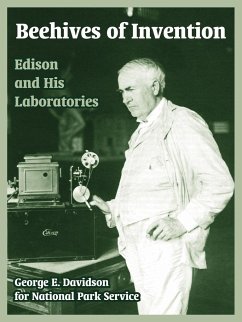He hated the radio; he called it a "lemon." He had even less use for the electronic phonograph. In 1925 he sounded the death knell for the Edison name in the home phonograph industry by saying he would stick with his mechanical device. After much stubborn hesitation, his company brought out an electronic phonograph in 1928. But it was too late. In 1929 the Edison company stopped manufacturing entertainment phonographs and records. A last-minute venture into the mushrooming radio field failed soon afterwards. Thomas Alva Edison belonged to the 19th century. It was there, in the beginnings of America's love affair with technology, that the dynamic and sharp-tongued "country boy" from Milan, Ohio, put his extraordinary genius to work and achieved national fame. In that age before the horseless carriage and wireless Thomas Edison made his remarkable contribution to the quality of life in America and became a folk hero, much like an Horatio Alger character. Edison's reputation stayed with him in the early 20th century, but his pace of achievements slackened. At his laboratory in West Orange, N.J., in the 1900's he did not produce as many important inventions as he had there and at his Menlo Park, N.J., lab in the late 1800's. Edison's projects and quests became expensive, costing millions and resulting in few rewards and profits. His forays into many fields were continuing evidence of a Da Vinci-like breadth of mind, but they were not financially successful, or, one suspects, personally satisfying. Besides some financial success with a battery, it was profits from the phonograph and motion picture innovations, both fruits of his work in the 19th century, that kept Edison solvent in those later years.
Hinweis: Dieser Artikel kann nur an eine deutsche Lieferadresse ausgeliefert werden.
Hinweis: Dieser Artikel kann nur an eine deutsche Lieferadresse ausgeliefert werden.








